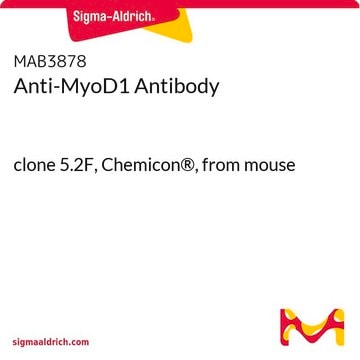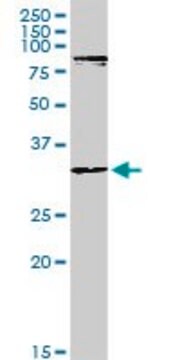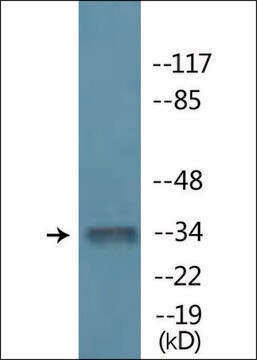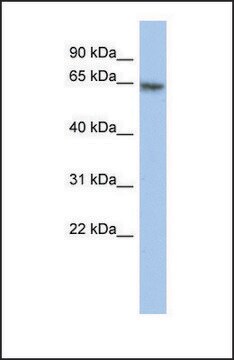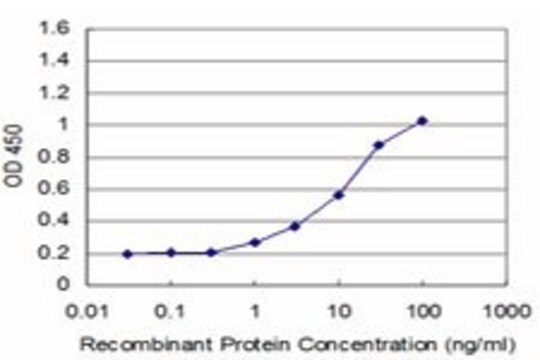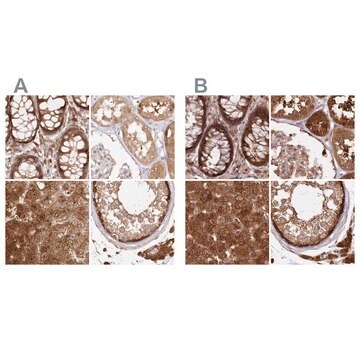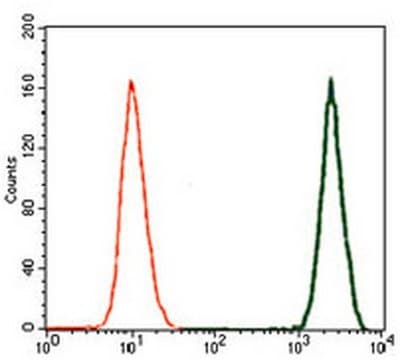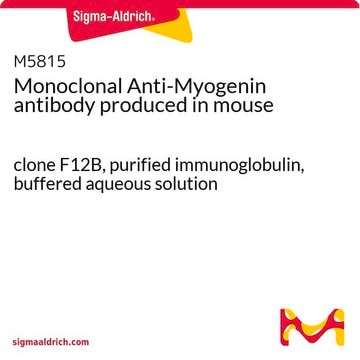MABE132
Anti-MyoD Antibody, clone 5F11
clone 5F11, from rat
Sinonimo/i:
Myoblast determination protein 1
About This Item
Prodotti consigliati
Origine biologica
rat
Livello qualitativo
Forma dell’anticorpo
purified immunoglobulin
Tipo di anticorpo
primary antibodies
Clone
5F11, monoclonal
Reattività contro le specie
mouse
tecniche
immunocytochemistry: suitable
western blot: suitable
Isotipo
IgG2aκ
N° accesso NCBI
N° accesso UniProt
Condizioni di spedizione
wet ice
modifica post-traduzionali bersaglio
unmodified
Informazioni sul gene
mouse ... Myod1(17927)
Descrizione generale
Immunogeno
Applicazioni
Western Blot Analysis: A representative lot detected MyoD in C2C12 cells.
Signaling
Developmental Signaling
Qualità
Western Blot Analysis: 0.5 µg/mL of this antibody detected MyoD in 10 µg of C2C12 cell lysate.
Descrizione del bersaglio
Linkage
Stato fisico
Stoccaggio e stabilità
Risultati analitici
C2C12 cell lysate
Altre note
Esclusione di responsabilità
Not finding the right product?
Try our Motore di ricerca dei prodotti.
Codice della classe di stoccaggio
12 - Non Combustible Liquids
Classe di pericolosità dell'acqua (WGK)
WGK 1
Punto d’infiammabilità (°F)
Not applicable
Punto d’infiammabilità (°C)
Not applicable
Certificati d'analisi (COA)
Cerca il Certificati d'analisi (COA) digitando il numero di lotto/batch corrispondente. I numeri di lotto o di batch sono stampati sull'etichetta dei prodotti dopo la parola ‘Lotto’ o ‘Batch’.
Possiedi già questo prodotto?
I documenti relativi ai prodotti acquistati recentemente sono disponibili nell’Archivio dei documenti.
Il team dei nostri ricercatori vanta grande esperienza in tutte le aree della ricerca quali Life Science, scienza dei materiali, sintesi chimica, cromatografia, discipline analitiche, ecc..
Contatta l'Assistenza Tecnica.